Archive
2021
KubaParis
6 Friedberg-Chicago
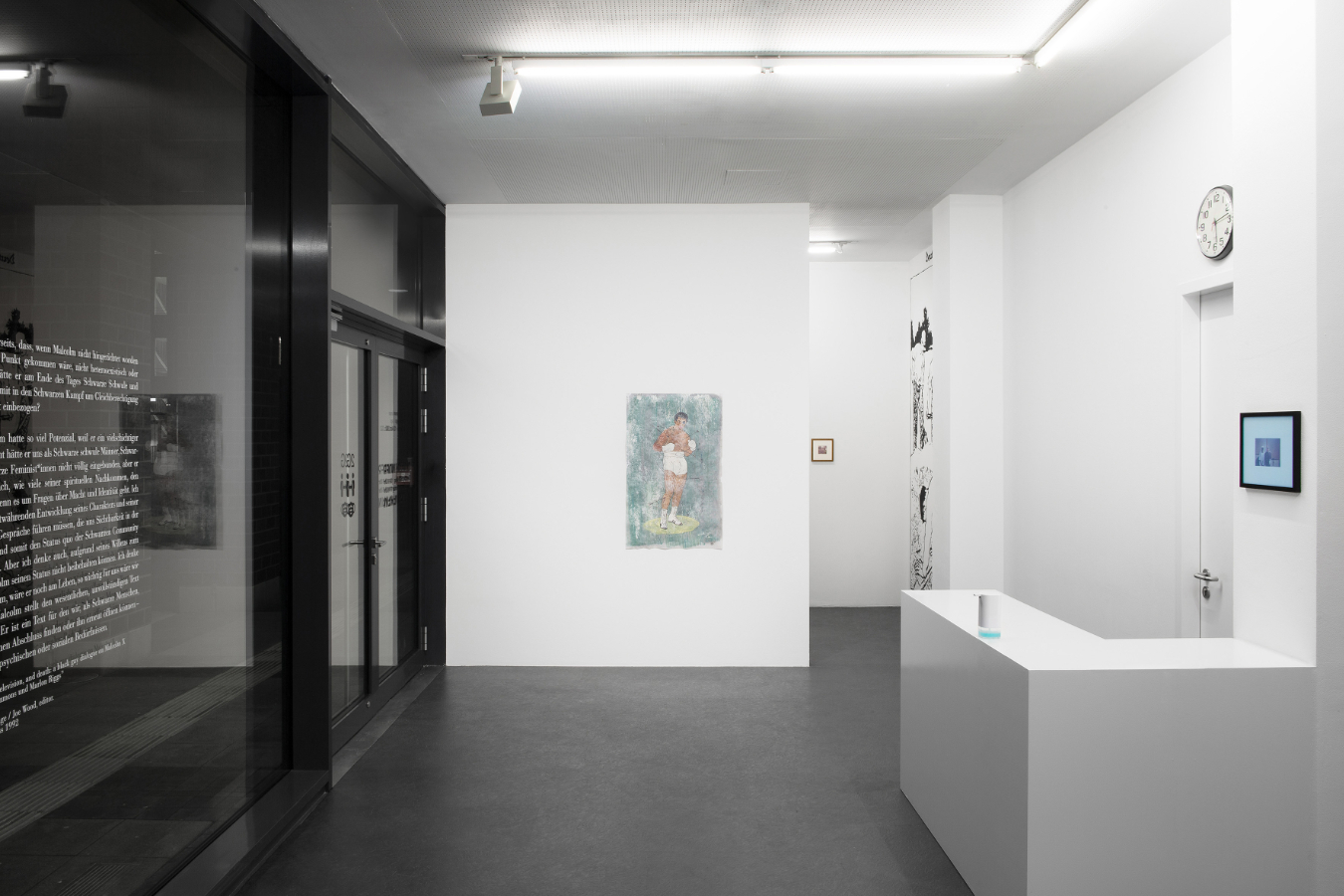
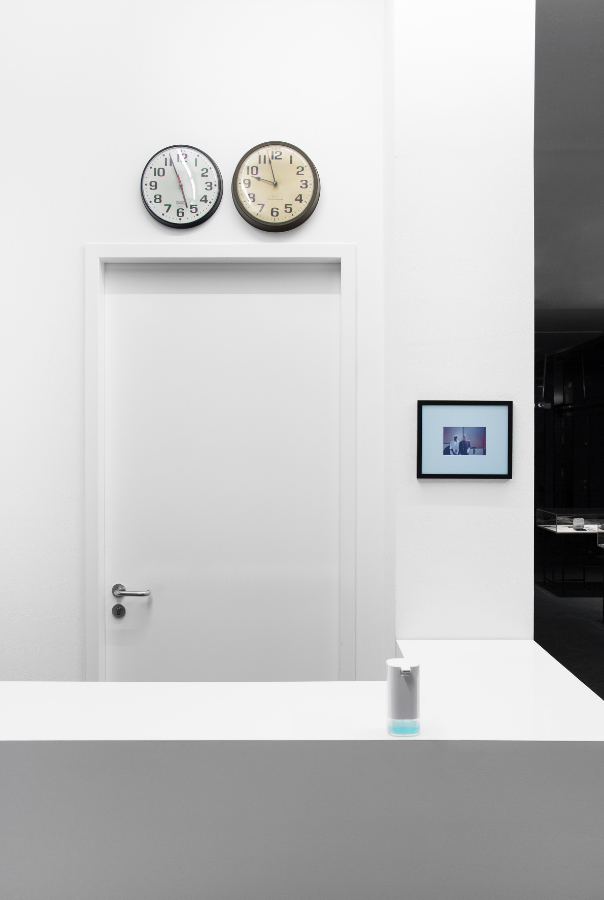
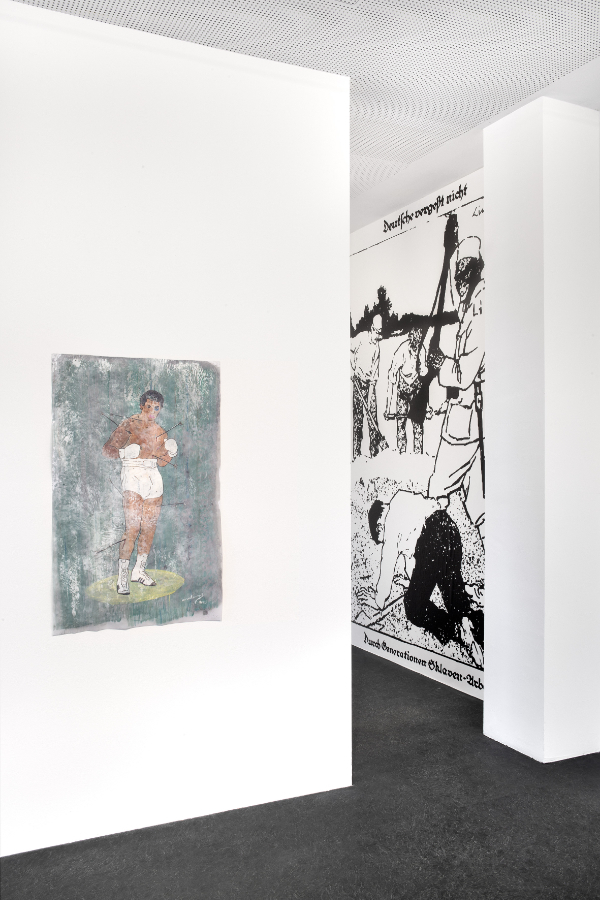
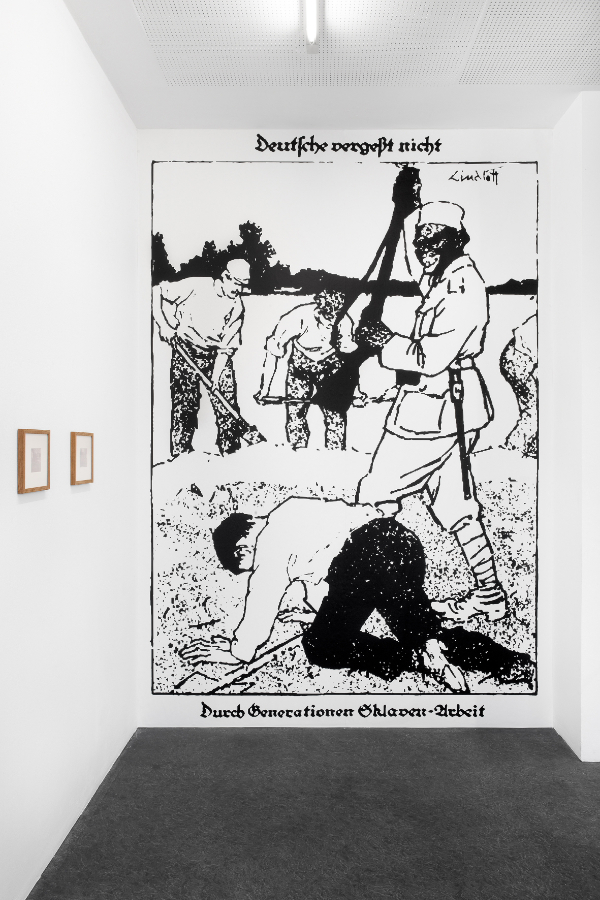
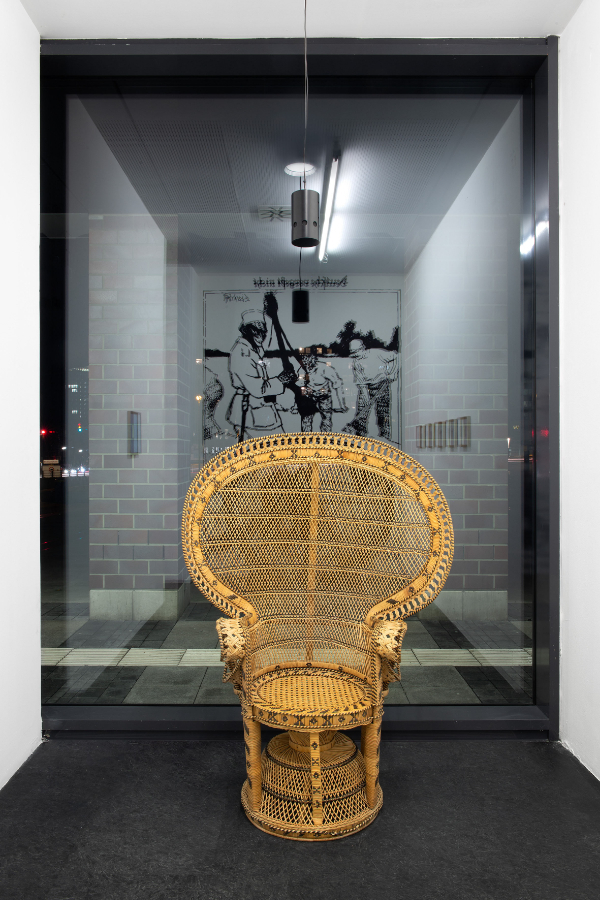
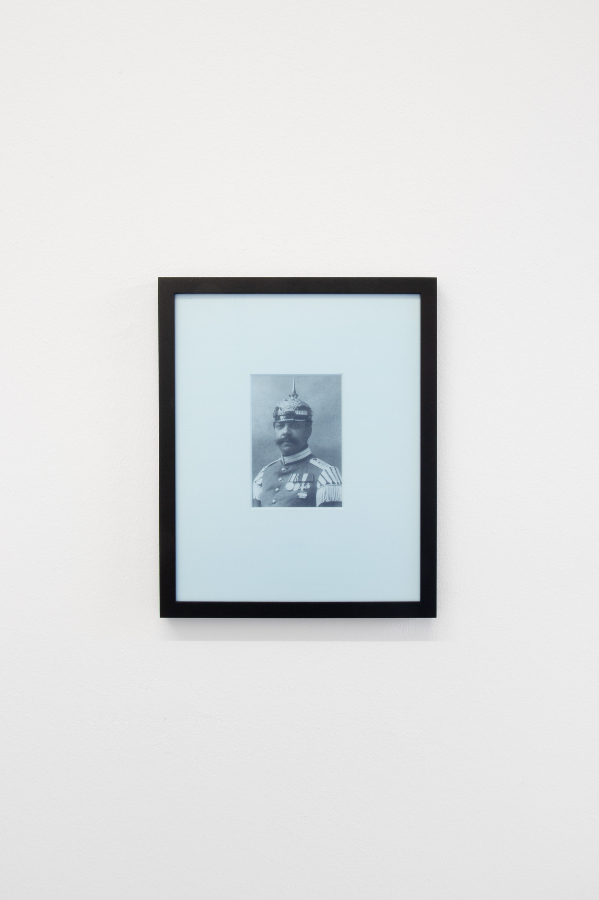
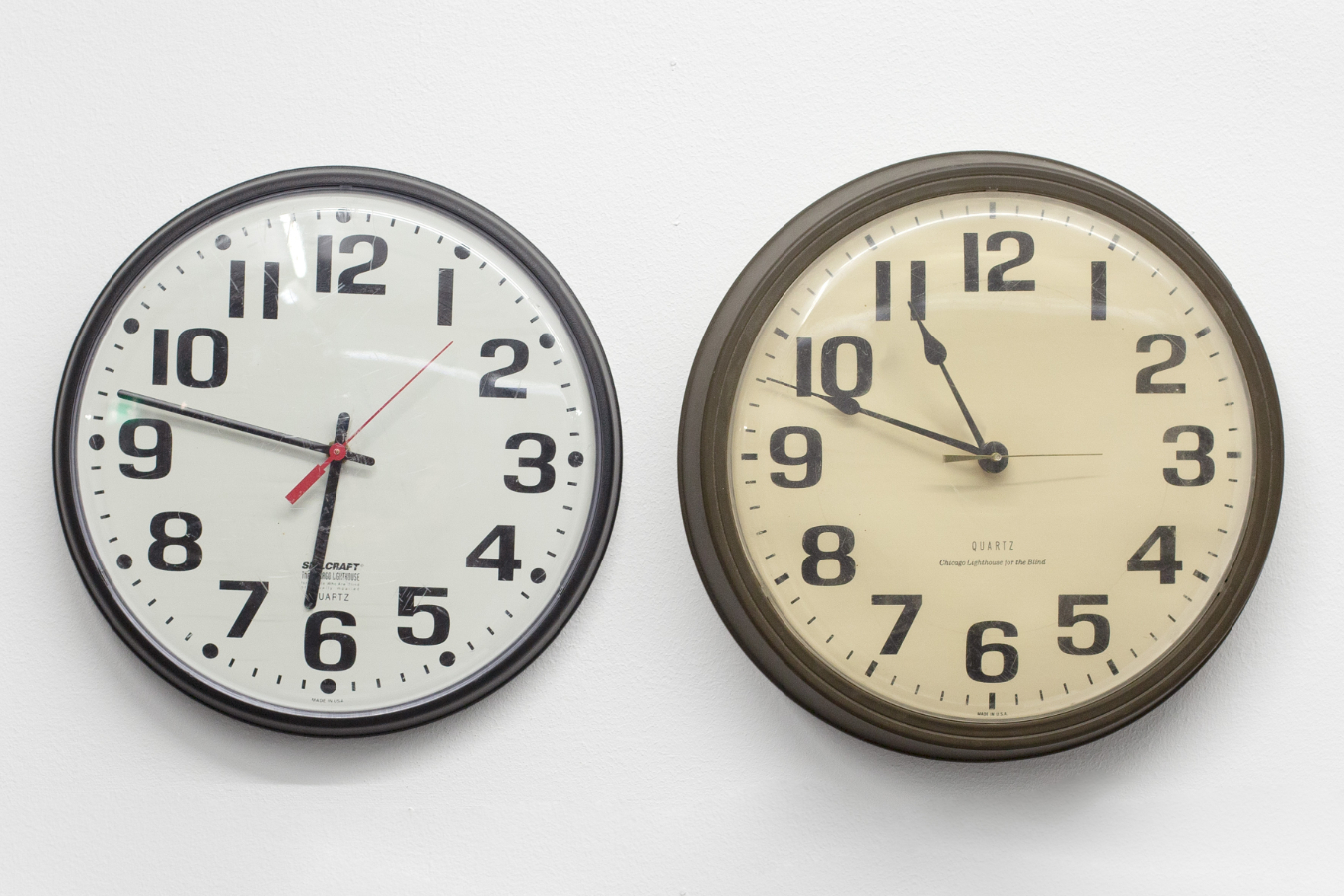
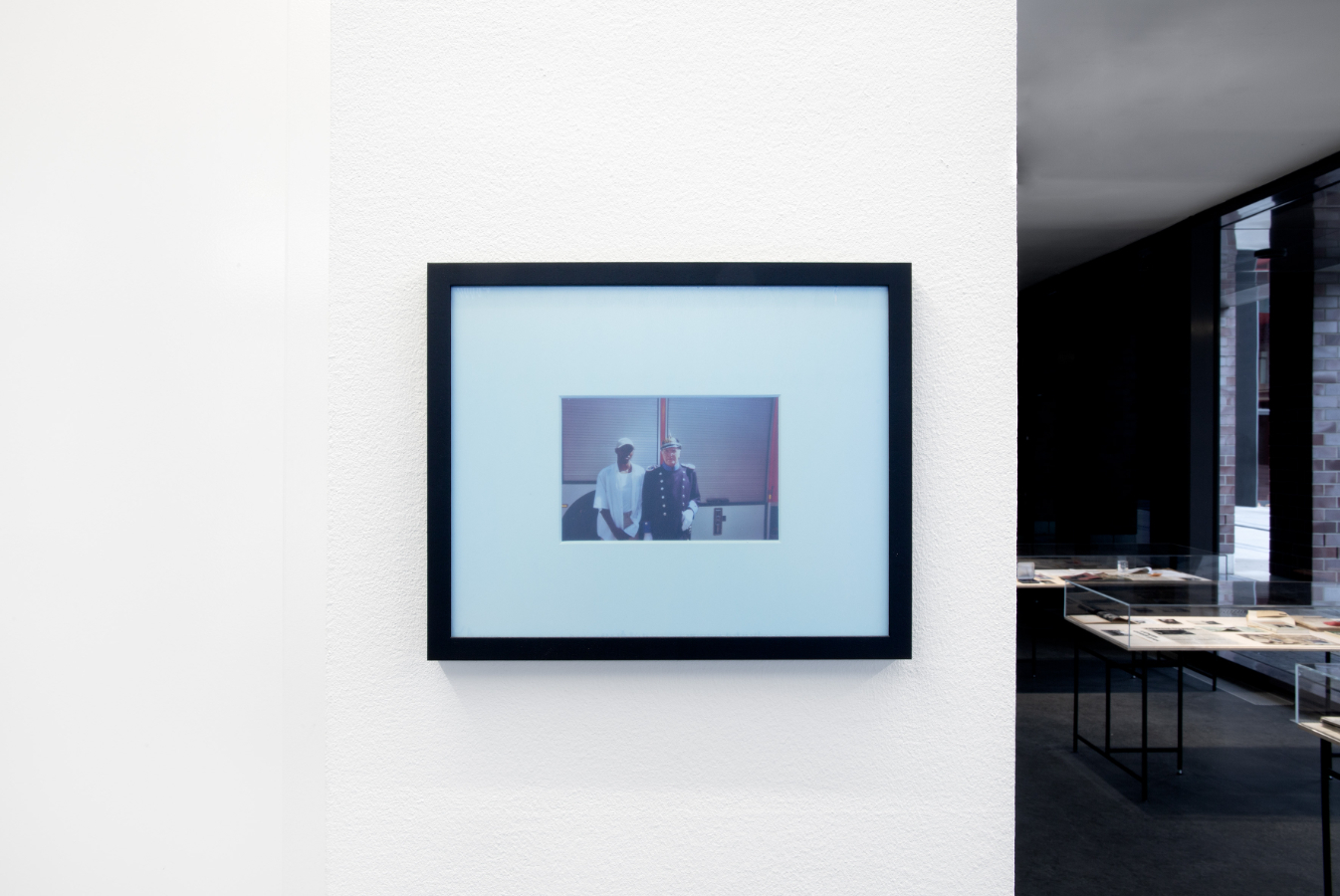
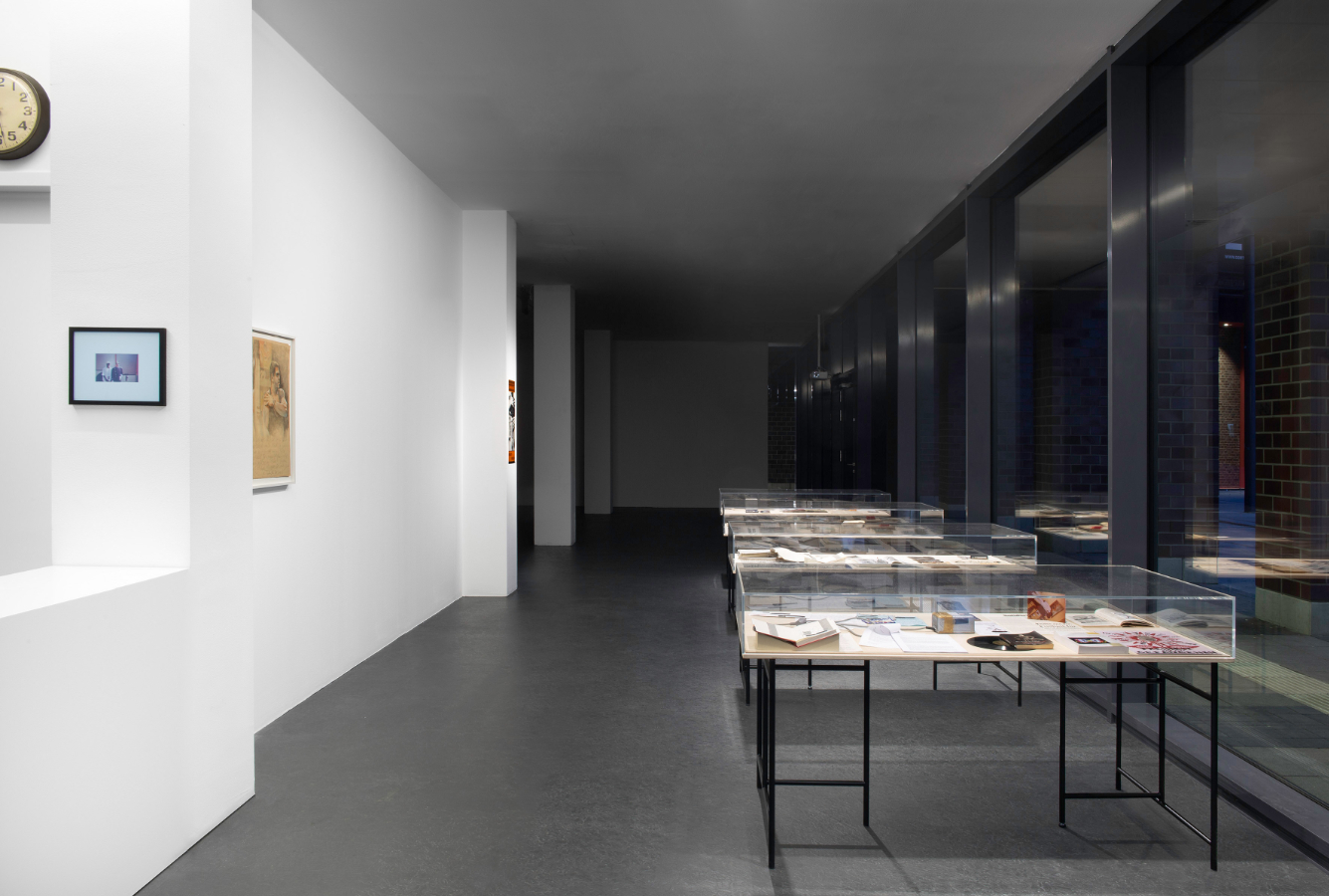
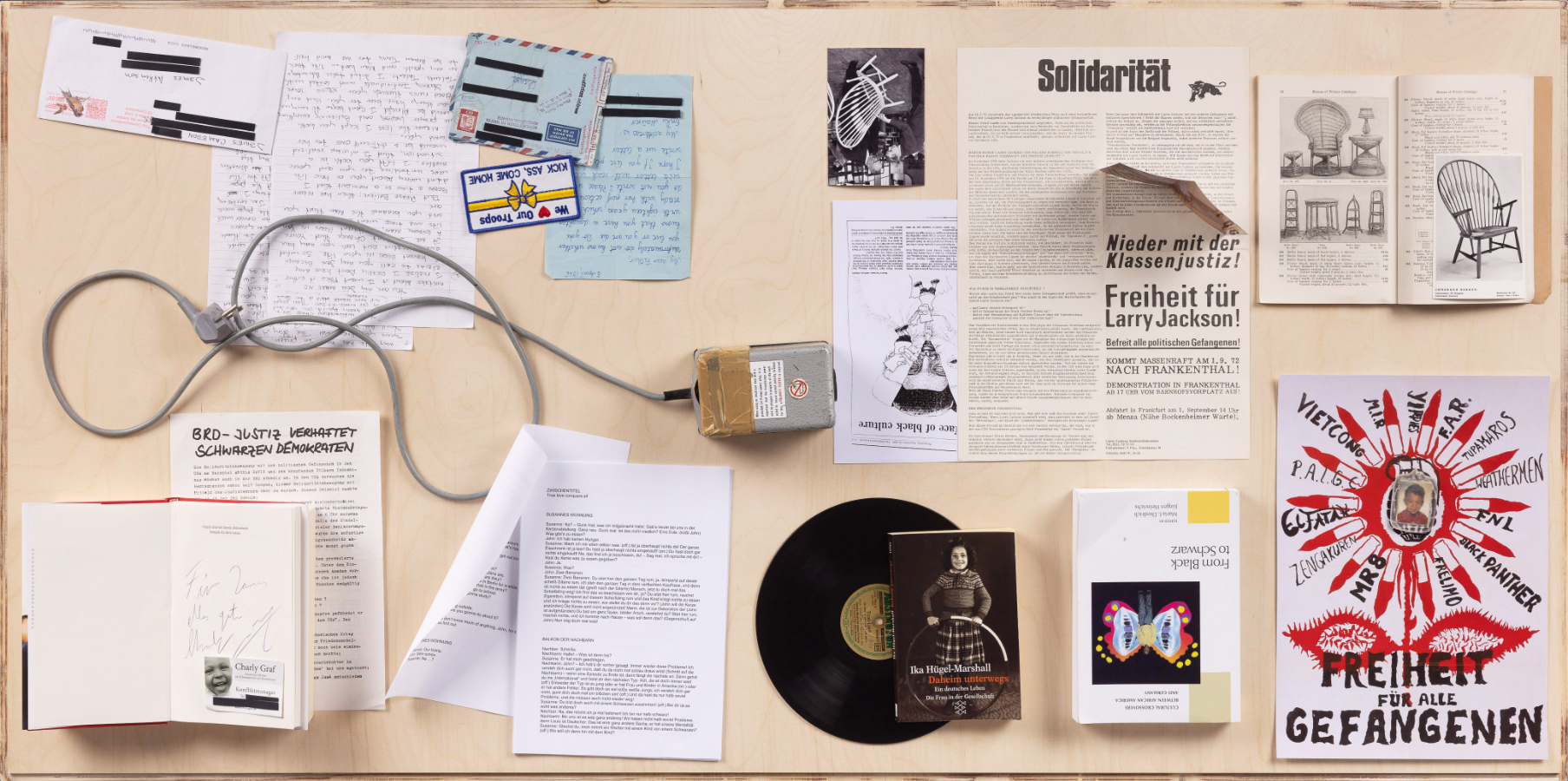
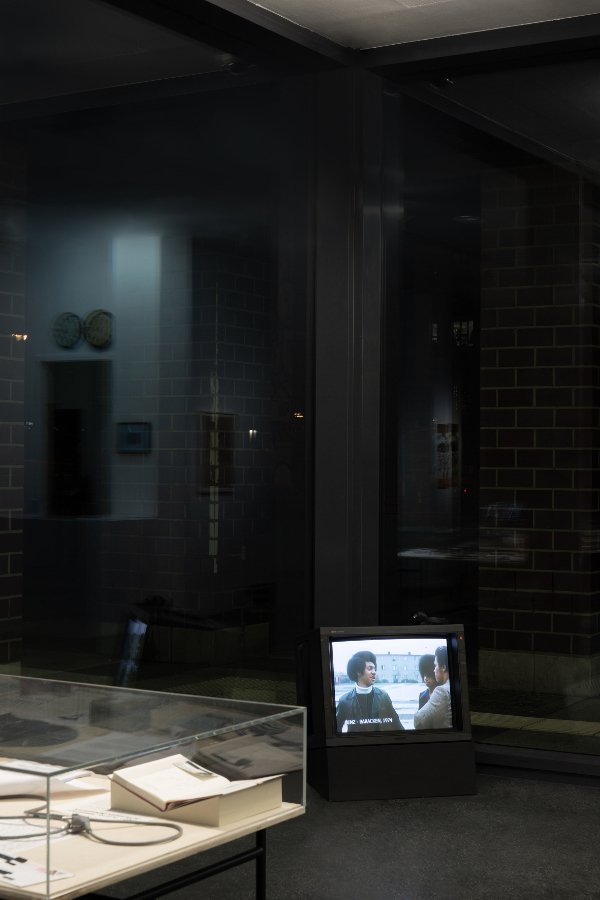
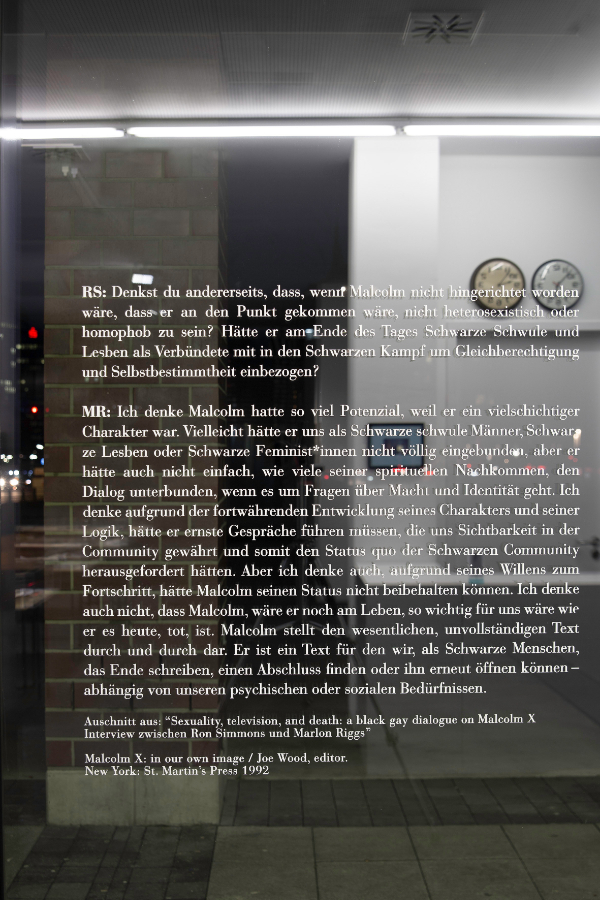
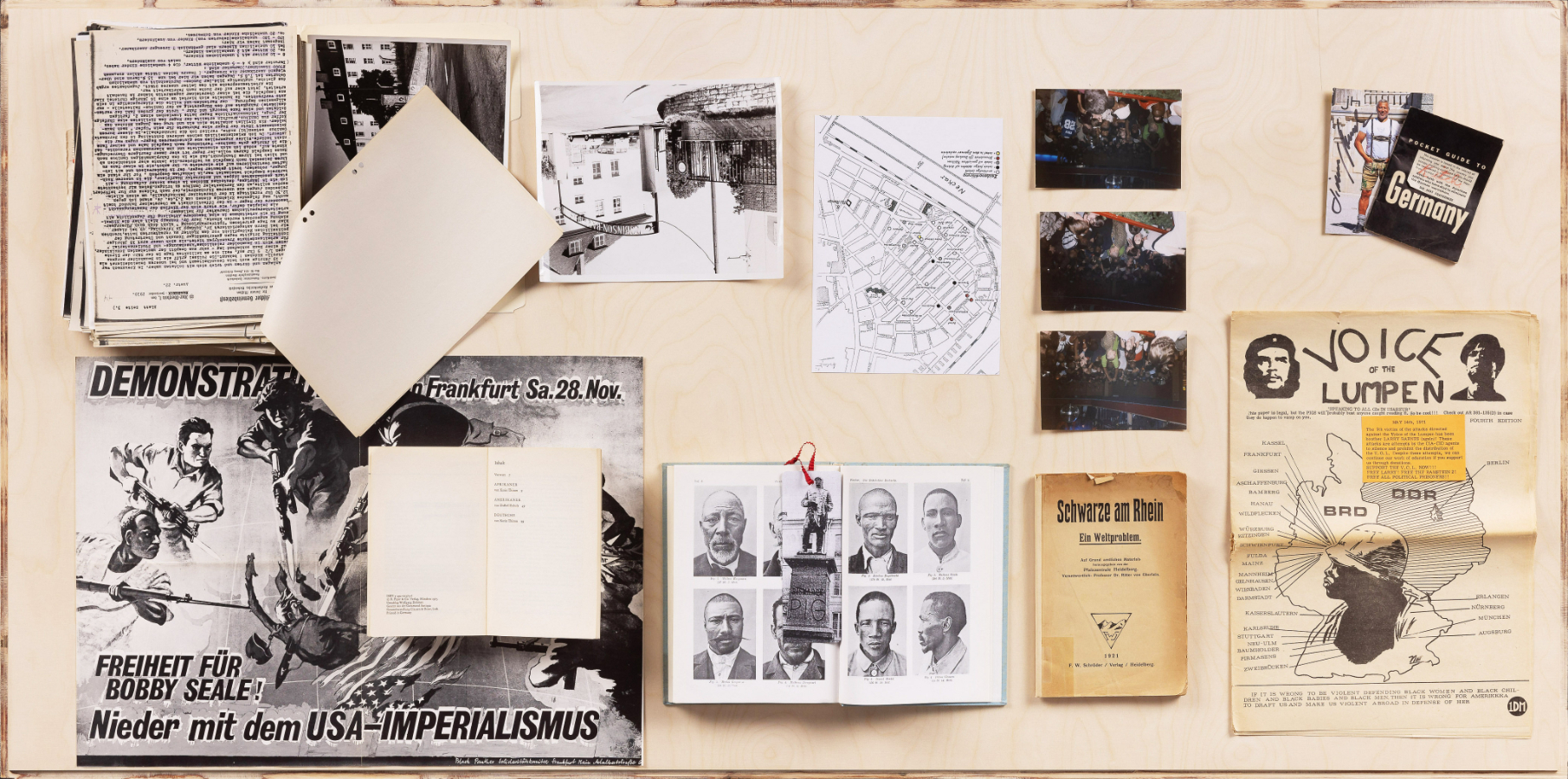
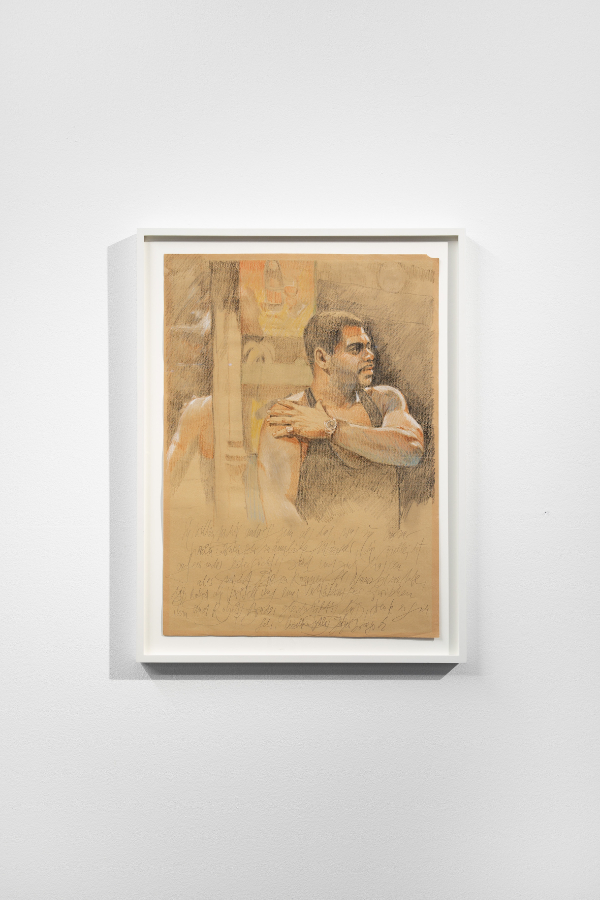
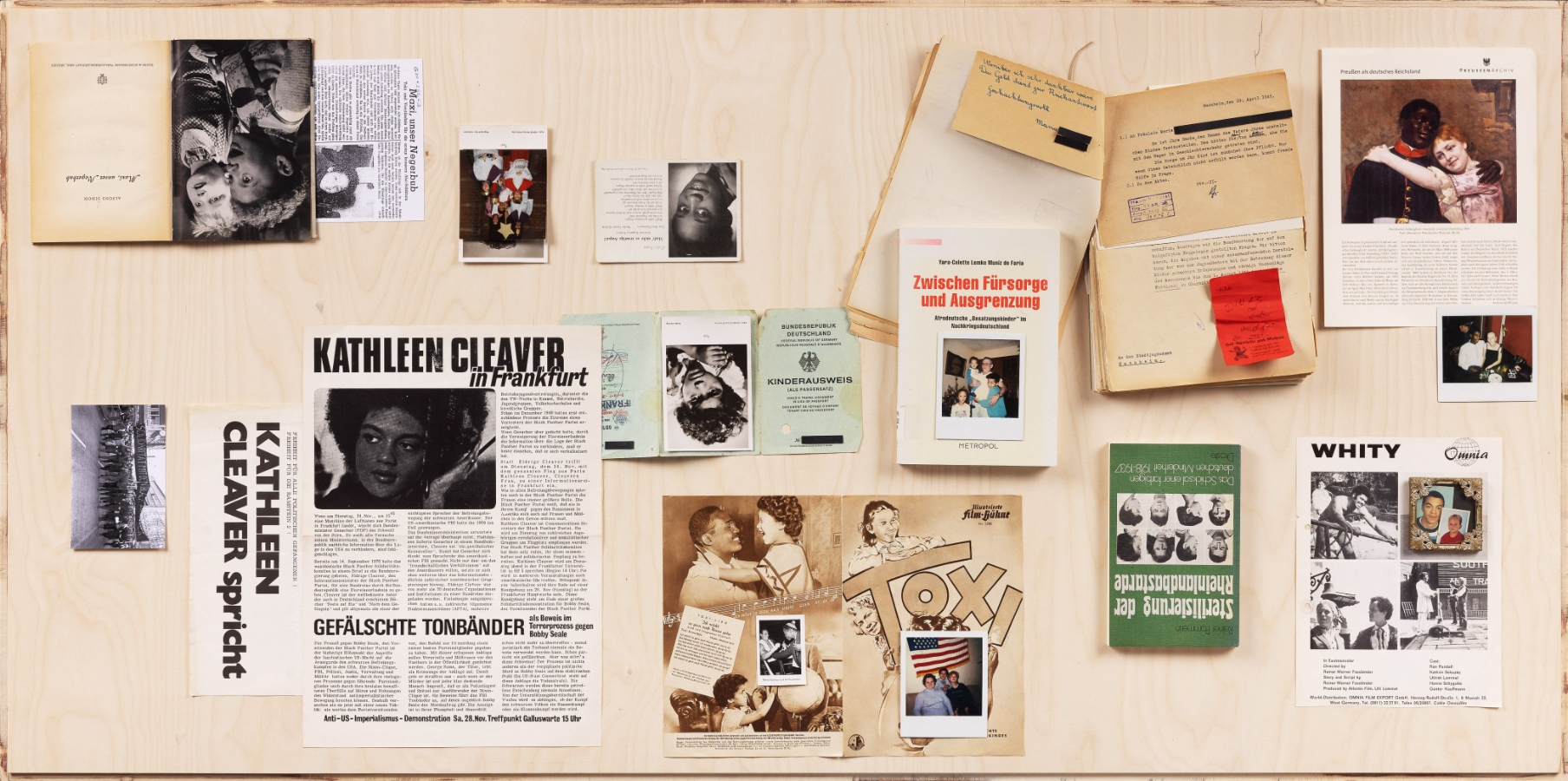
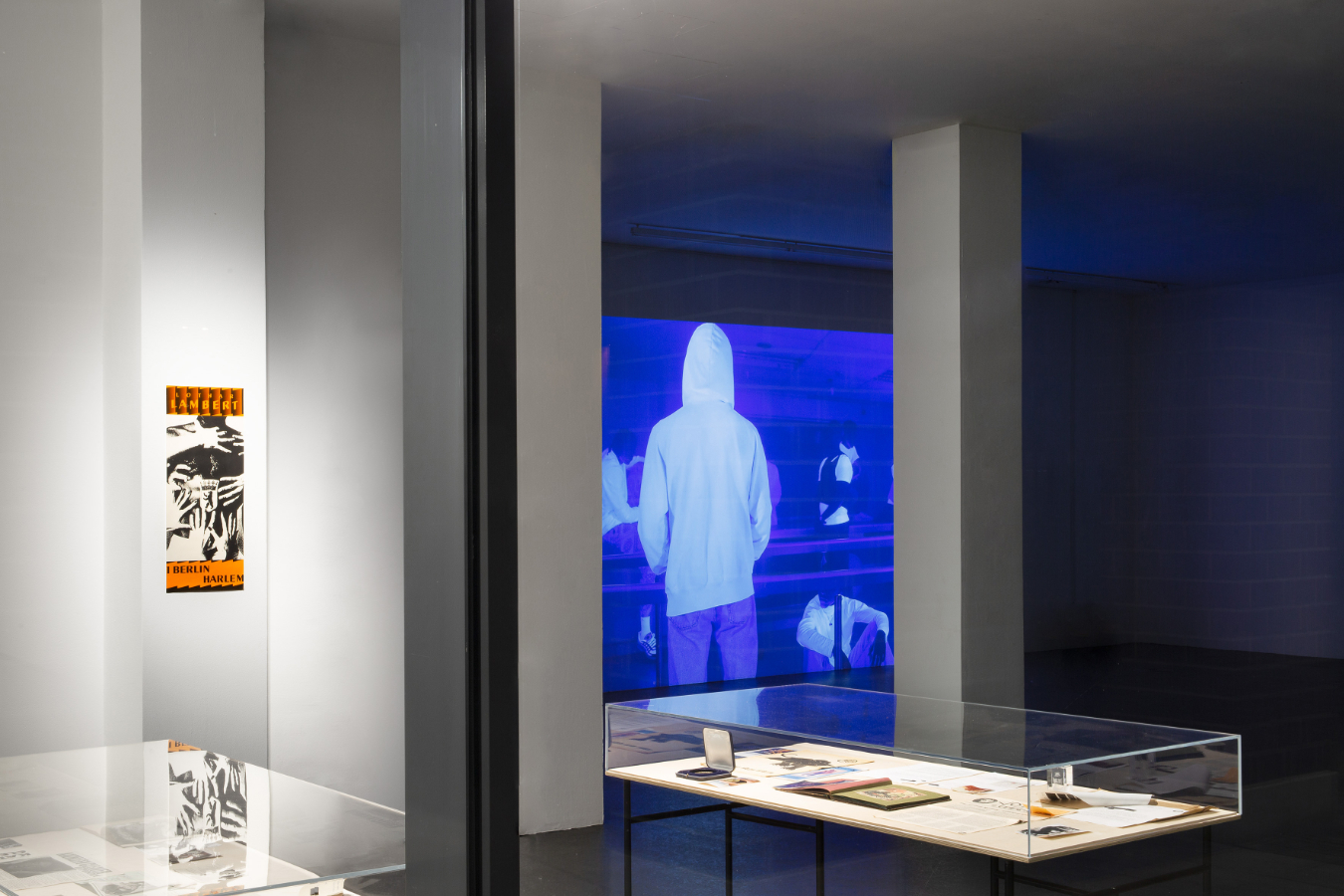
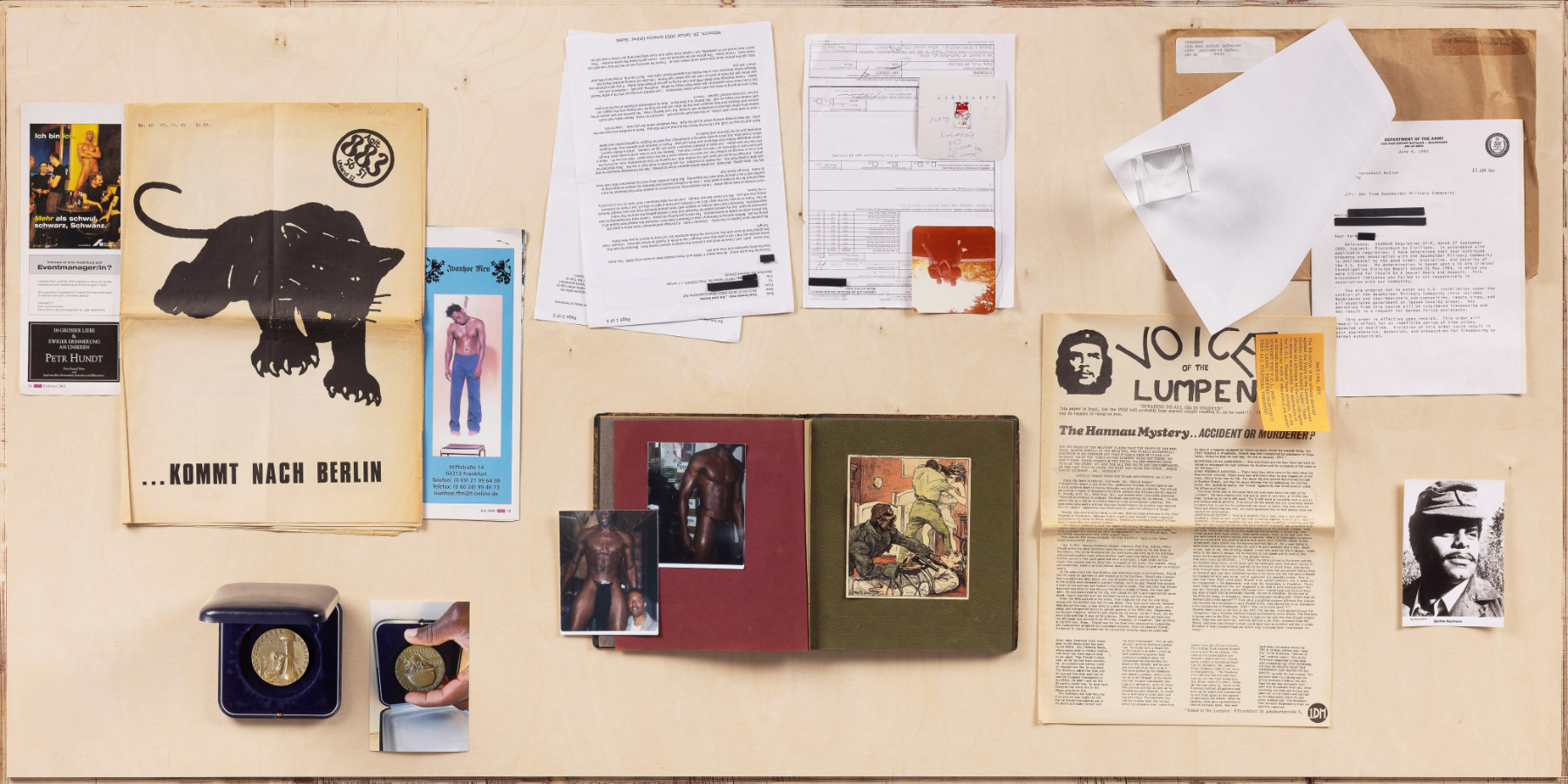
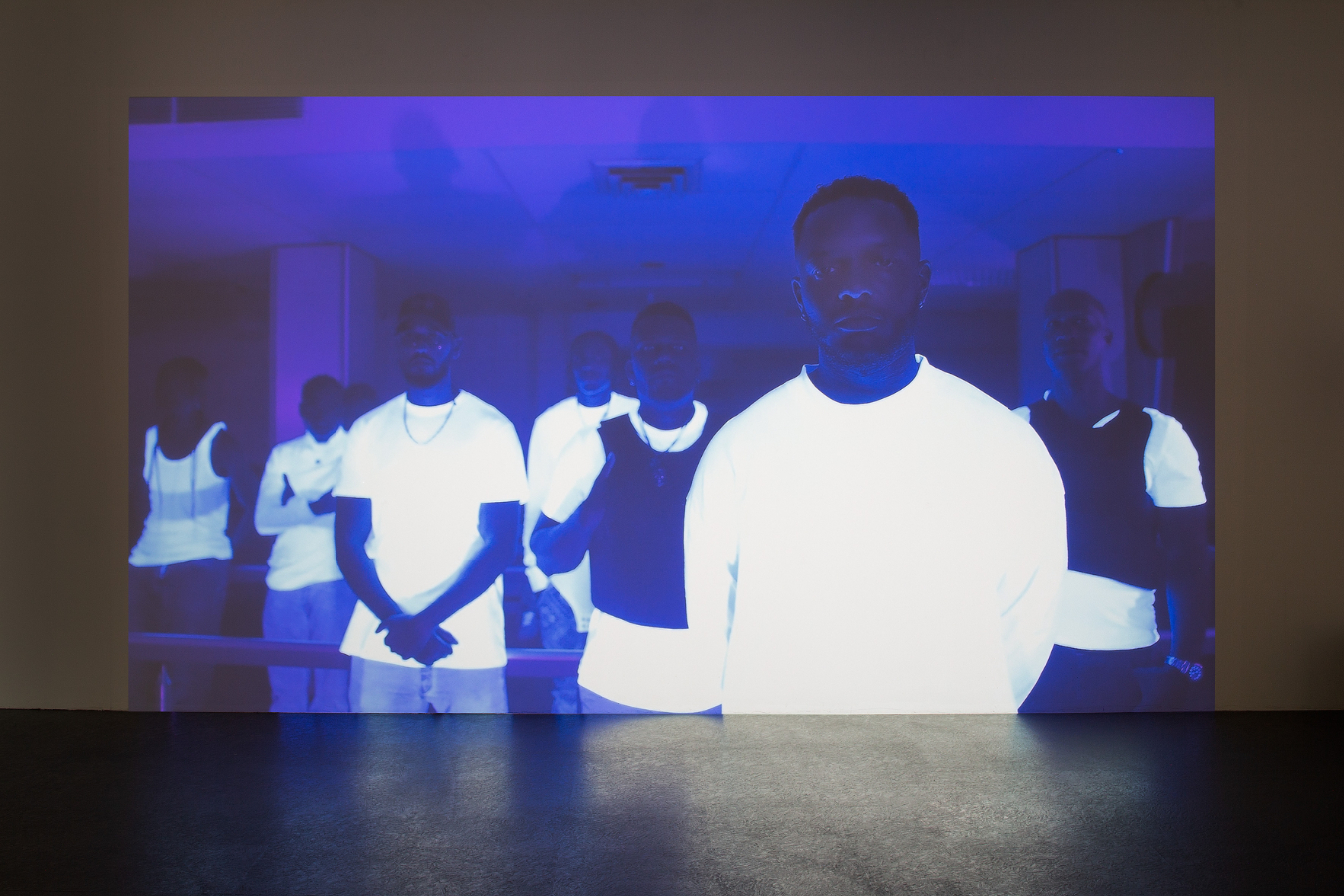
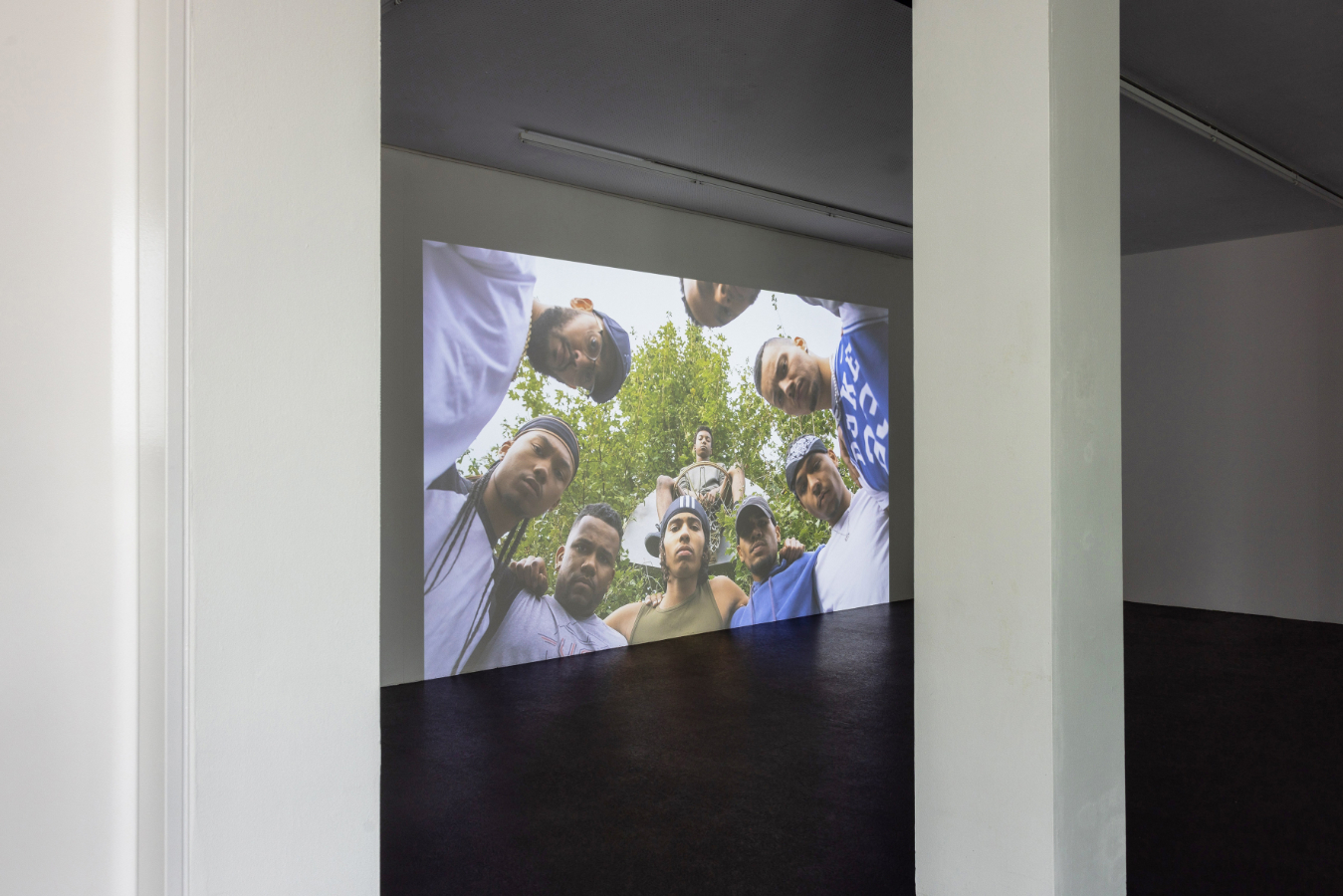
Location
Dortmunder KunstvereinDate
09.12 –12.03.2022Curator
Rebekka SeubertPhotography
Jens Franke / Roland BaegeSubheadline
6 Friedberg–Chicago, the first institutional solo-exhibition by the German-American artist James Gregory Atkinson, illuminates a neglected part of Afro-American-German history on personal, social and political levels. The exhibition presents the artist’s new same-titled film, which he shot in the Ray Barracks, a former US Army base in Friedberg. It was made in collaboration with the dancer and choreographer Josh Johnson and the harpist and singer Ahya Simone. The exhibition also presents a non-linear archive exploring the history of black soldiers in Germany and that of their children, compiled with Eric Otieno (sociologist and political scientist) and Mearg Negusse (art historian). James Gregory Atkinson (*1981 in Bad Nauheim) studied with Douglas Gordon at the Städelschule, Frankfurt, and has received scholarships and artist residencies from the Villa Aurora, Los Angeles (2016), and the Jan Van Eyck Akademie, Maastricht (2017), and a studio grant for New York from the Hessische Kulturstiftung (2018).Text
The contemplation of time can be thought of as a dance that fast-forwards and rewinds physical memory, thus enabling a turnaround and a return, an assurance of words and sounds, a re-sensing of loneliness or solidarity, of energy, sweat, images, gestures and bodies. James Gregory Atkinson’s artistic practice emerges through time-based media and considerations arising from his involvement with film, photography, performance, dance and music, in the production of his own images and the examination of external images appropriated as ‘objets trouvés’.
In his first institutional solo exhibition, Atkinson illuminates a neglected part of African-American–German history on personal, social and political levels. Along with his specially produced video ‘6-Friedberg Chicago’, which was filmed in former US Army barracks in Friedberg, Atkinson presents a non-linear archive of texts, images, objects, multi-media sources and eye-witness accounts relating to Black soldiers in Germany and their children born here. The archive was developed in collaboration with the art historian Mearg Negusse and the sociologist and political scientist Eric Otieno, and enables a different reading of history that allows users their own interpretations in the sense of a ‘counter-memory’ (Hal Foster, ‘An Archival Impulse’, 2004)).
In this first part of the exhibition Atkinson meanders associatively through decades of German history, fast-forwarding and rewinding time, zooming in and out from the personal to the global. He brings his own biography into dialogue with other biographies as an ideal intergenerational community of contemporary and historical personalities: from the Prussian military musician Gustav Sabac el Cher (1868–1934) to the singer Marie Néjar (*1930), the actor Elfie Fiegert (*1946), the German heavyweight boxing champion Charly Graf (*1946), the writer Ika Hügel-Marshall (*1947), the actor Günther Kauffmann (1947–2012), the footballer Jimmy Hartwig (*1954) and the artist Marc Brandenburg (*1965). Themes here are the constructed perception of Black masculinity, fetishisation, fear and sexuality.
Aside from historical references – to the ‘Rhineland children’, for example, sons and daughters of soldiers from French colonial troops who were born during the occupation of the Rhineland in the 1920s and systematically persecuted and compulsorily sterilised during the ‘Third Reich’– for the most part the archive contains material about the children of Afro-American US soldiers born from 1946 until today, mainly in Hesse and south-west Germany. The year 1952 plays a special role in that it was the year the first generation of several thousand Black ‘occupation children’ entered the school system. This prompted a nationwide debate about basic attitudes, as can be heard in an audio file in the exhibition, and led to the film ‘Toxi’, which describes the fate of a Black child who is unwanted by 1950s German society and finally taken to the United States by her African-American father. But the archive also documents solidarity between the US civil-rights movements, Black soldiers in Germany and German political activists, exemplified by East Germany’s support for Angela Davis, but also by various activist groups in West Germany, such as the Black Panther Solidarity Committee or the magazine ‘Voice of the Lumpen’, published by KD Wolff in Frankfurt am Main.
In the back part of the exhibition Atkinson presents his video ‘6 Friedberg-Chicago’ (whose title is referencing Lothar Lambert’s film ‘1 Berlin-Harlem’, 1974). It was filmed in Ray Barracks, a former US Army installation in Friedberg, where the artist’s father was stationed. The video shows a group of 17 young men whose fathers had also been stationed in Germany. Their movements, choreographed by Josh Johnson, and the video’s aesthetic allude to music clips – for many born in the 1990s their first access to artistic expression through pop culture. The strong images of the video are contrasted by the soundtrack, a lullaby that builds a bridge to the archive. It is a newly interpreted adaption of the title music to the film ‘Toxi’ (1952), now performed by the queer harpist Ahya Somone: ‘Ich möcht‘ so gern nach Hause gehen / Die Heimat möcht‘ ich wieder sehn / Ich find‘ allein nicht meinen Schritt / Wer hat mich lieb und nimmt mich mit? / Ich bin so verlassen / Und hör kein liebes Wort / So fremd sind die Gassen / Warum kann ich nicht fort?’
James Gregory Atkinson (*1981 in Bad Nauheim) studied with Douglas Gordon at the Städelschule, Frankfurt, and has received scholarships and residencies at the Villa Aurora, Los Angeles (2016), the Jan Van Eyck Akademie, Maastricht (2017), and a studio grant for New York from the Hessische Kulturstiftung (2018). His film ‘Jailbird in a Peacock Chair’ was presented at Berlinale in 2022.
A catalogue will be published by Spector Books. Both exhibition and catalogue are part of the ‘Catalogues for Young Artists Award’ from the Alfried Krupp von Bohlen and Halbach Foundation.
//
VIDEO: James Gregory Atkinson: 6 Friedberg-Chicago
Credit: 6 Friedberg-Chicago - a film by James Gregory Atkinson
Dedicated to Marie Nejar
DOP + Edit: Marcel Izquierdo Torres
Music: Leila Negra Toxi-Lied (Ich möcht’ so gern nach Hause geh‘n), arranged and performed by Ahya Simone
Engineer: Shigeto
Vocal and Language Coaching: Ruth Rosenfeld
Choreography: Josh Johnson
Project Management: Mearg Negusse
Production: Friederike Seifert
Styling: Lorena Maza @lorenamazastyling
Styling Assistant: Florian Brandl
Cast: Kyran Rogalski, Cushan K. Davis, Tyrone Marinkovic, Johnnie Sherman Dills, David Cooper, Tobias Lovelace, Jamel Atkinson, Jordan Arrington , Donovan Reinhardt, Raymond Allen Weston, Danny Jerome Sittig, Carlos Anthony Johnson, Claudio Groneberg, Noah McCrary, Kylil Thompson, Jontae Reid, Samuel Powell
Graphics: Juliana Maria Tott
Commissioned by DORTMUNDER KUNSTVEREIN
Produced with the kind support of HESSISCHE KULTURSTIFTUNG, GOETHE INSTITUT New York and VILLA AURORA, L.A
Special Thanks to: Irmgard Atkinson, Martha Rogalski, Ulrike Seifert, Magnus Elias Rosengarten, Jennifer Reid
Rebekka Seubert